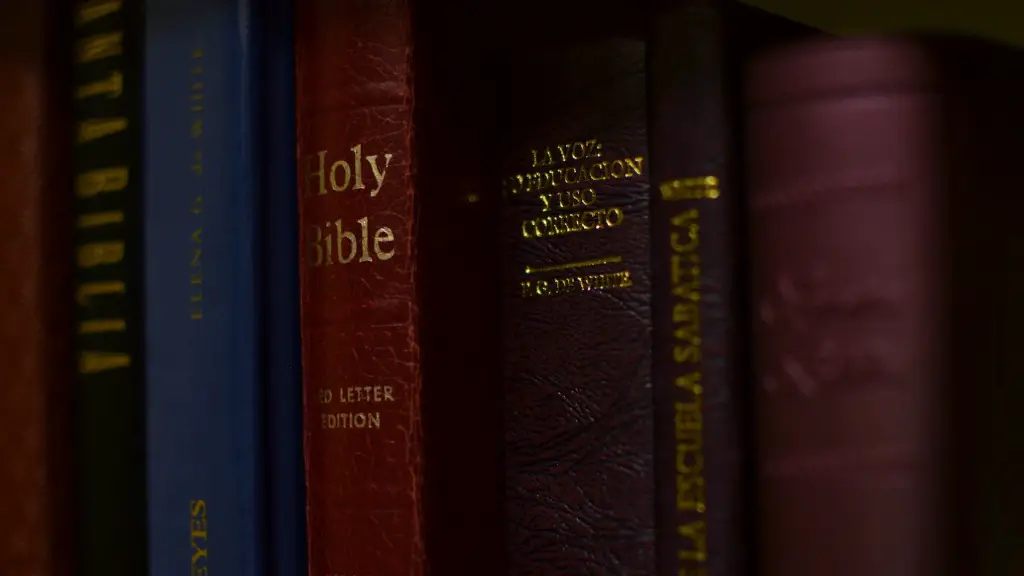What is a censer in the Bible?
A censer is an ancient object used in religious ceremonies. The censer is mentioned in several Bible passages and has been a part of religious tradition since biblical times. In the Bible, a censer is a round metal vessel that holds burning incense or perfumed herbs. It is often used in religious services or rituals, and sometimes described as the “coals of fire” burnt for a pleasing aroma.
The censer would be used to ensure the presence of God or other divine figures in the ritual. The sweet smelling smoke of the burning incense was intended as an offering to the Gods, and to create a holy atmosphere. It was used in both Jewish and Christian ceremonies, and was believed to be a symbol of God’s presence. In some traditions, the priest would carry the burning censer around the room and the congregation would follow.
The use of incense may have originated in the Middle East and Ancient Egypt. In the Bible, it is mentioned in several passages in the Old Testament, including Exodus 25:6, Leviticus 16:12, and Numbers 16:17-18, and also in the New Testament, in Revelation 8:3-4 and 5. In each of these passages, we can see how important and symbolic the burning censer is.
In the Bible, the censer is often associated with the concept of purification. In Leviticus 16, for instance, the priest is commanded to use a censer filled with coals from the altar of burnt offerings in order to make atonement for himself, the people, and the altar. This suggests that the smoke from the censer was meant to purify the area and make it suitable for the worship of God.
A censer could also be used as an implement of prayer. In the Book of Psalms, a censer is described as being used in calling out to God: “Let my prayer arise like incense in your presence, and my cry as the smoke of the censer”. Censing is still practised today in churches and some other places of worship.
In the Bible, the censer is often used as an icon of the holiness and mercy of God. In Revelations 8:3-4, an angel appears with a golden censer and filled it with perfumes. He then threw it to the Earth, and it filled the planet with a sweet-smelling scent. This symbolizes the grace that God had for his people, and the forgiveness of every sin. The burning of incense also symbolizes the perfect offering that man can make to God.
A Historical Context
Censing predates Christianity, with its practice likely having originated in Ancient Egypt and the Middle East. In Ancient Egypt, censing was associated with the gods, used to bless and consecrate places, and to accompany sacrificial rites. In Judaism, it was first mentioned in the Book of Exodus, when Moses was commanded to make a golden altar and place burning incense on it. In Christianity, the practice of censing had already been established when Jesus stepped on the scene.
In the Gospels, there are several passages involving the censer. Jesus is seen to be censing when He entered the temple for the first time (John 8:2); before the two disciples on the road to Emaus (Luke 24:30); and when He was tempted in the wilderness (Matthew 4:5). In all these cases, Jesus was making a statement, sanctifying and cleansing the area.
In the Catholic Church, the censer is used during the Mass. It is a sign of respect. The censer is swung in different directions as a sign of honour. The smoke is a symbol of the prayers of the congregation, rising to God.
Symbolism of the Censer
The censer has many symbolic meanings in the Bible. It is seen as a sign of purification and respect, often used to welcome divine presence. The smoke from the censer is seen as a symbol of the prayers of the faithful. In some religious traditions, the censer is used to symbolize the prayers of the deceased.
The censer can also be interpreted as a symbol of hope and forgiveness. The smoke from the censer symbolizes faith that one’s sins are not just forgiven, but that God has also accepted their prayers. It is a symbol of divine grace and acceptance.
In some Christian traditions, there is a special meaning behind the shape of the censer. It is often a vessel in the shape of a bowl, often with a lid, and sometimes with a handle. This is seen to be a symbol of the mercy of God, which is as wide as the handle of the censer, and as deep as the bottom of the bowl.
Uses Today
The practice of censing is still alive today, especially in churches and other places of worship. In some churches, the officiant of the service will use a censer, swinging it with a portable chain. Others will place the censer on the altar. The smoke is a sign of prayers and offerings rising to God, a beautiful symbol of faith and devotion.
In modern times, censer are seen as symbols of beauty and faith, often placed in the home as decorative pieces. Displaying censers in the home is seen as a sign of respect, of faith, and of devotion. The fragrant smoke of the burning incense is a reminder of the presence of God and of the promise of forgiveness and mercy.
Other Uses
Aside from its religious uses, censers can also be used for other practical matters. In homes and businesses, for instance, the smoke from the incense is believed to ward off negative energy, or the presence of evil spirits. This is why some businesses or households will place a censer in the corner of their homes or buildings.
Modern censers also come in many different shapes and sizes, often decorated with intricate designs. This makes them beautiful objects in their own right. They are often used as part of ornate decorations or as unique gifts. They can also be given as tokens of respect or devotion, such as wedding or baptism gifts.
Conclusion
The censer is an important religious object in the Bible, with many symbolic and spiritual meanings. It is an ancient object, used since the time of Ancient Egypt, and still used today in religious ceremonies as a sign of reverence and respect. It is also a symbol of faith and of God’s mercy, a reminder of the presence of the divine.




